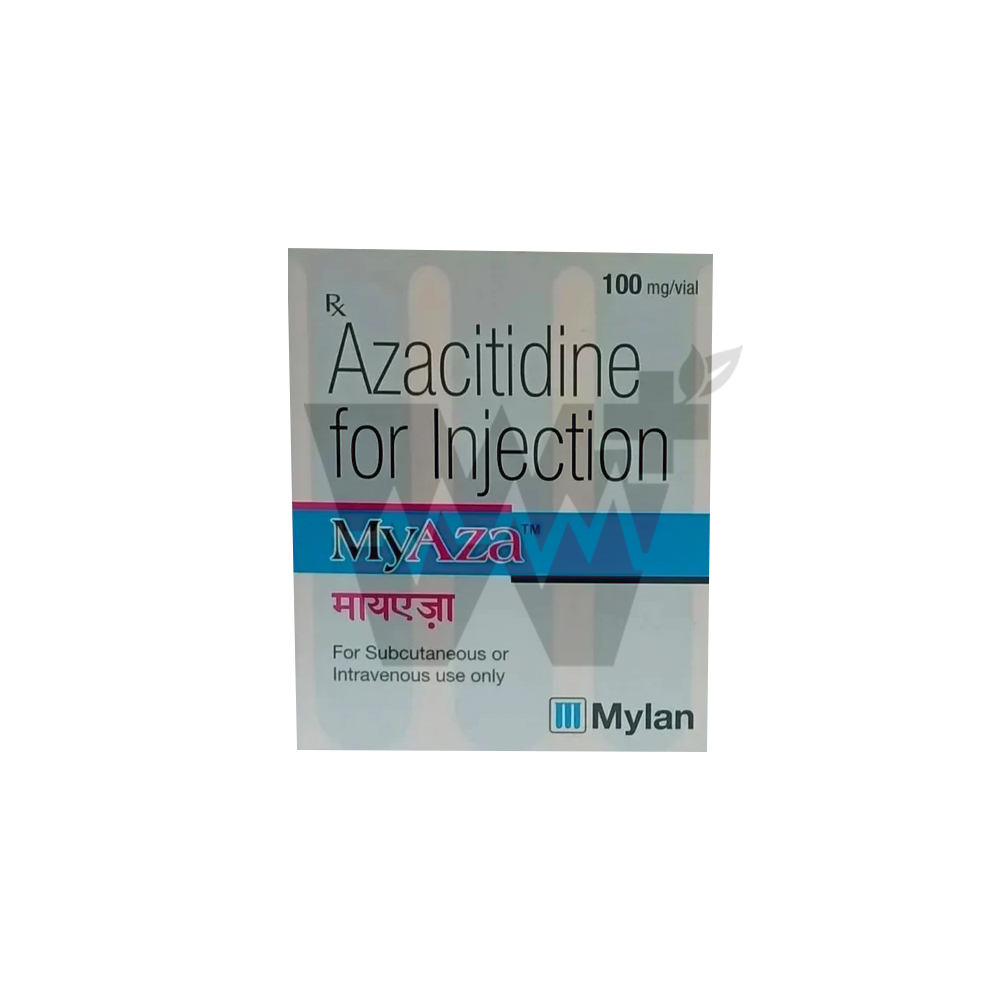



Introduction to Myaza Injection:
Myaza Injection is utilized in the treatment of specific types of blood cancer, primarily targeting adult patients with all subtypes of Myelodysplastic Syndrome (MDS). Additionally, it may be employed in the treatment of other conditions not entirely specified by the physician.
Myaza Injection is administered via injection under the medical supervision of a qualified healthcare professional. The dosage and frequency of administration will be determined by your doctor based on your specific condition and may be subject to adjustment over time. It is crucial to adhere to your doctor's instructions precisely. Taking incorrect doses or exceeding the prescribed amount can lead to severe side effects. While it may take several weeks or months to perceive the benefits of treatment, it is imperative not to discontinue the medication unless instructed by your doctor.
Uses of Myaza Injection:
Blood cancer
Treatment of Myelodysplastic Syndrome
Benefits of Myaza Injection:
In Blood cancer:
Myaza Injection, effective in combating blood cancer (leukemia), impedes the growth and proliferation of cancer cells while also preventing their replication. However, it is essential to recognize that Myaza Injection is a potent and highly toxic medication. Therefore, it is crucial to discuss the potential risks and benefits with your doctor. Additionally, it is advised to abstain from alcohol consumption during treatment and maintain adequate hydration.
In Treatment of Myelodysplastic Syndrome:
Myaza Injection is employed in the treatment of myelodysplastic syndrome, a condition characterized by abnormal production of blood cells in the bone marrow, leading to insufficient healthy blood cell production. Similar to its action in blood cancer, Myaza Injection halts the growth and replication of cancer cells in this disorder. As with any treatment, it is important to weigh the potential risks and benefits in consultation with your doctor.
Mechanism of Action of Myaza Injection:
Myaza Injection functions as an anticancer medication by obstructing the growth of genetic material (DNA and RNA) within cancer cells, particularly in leukemia. This mechanism leads to the destruction of cancer cells while facilitating the normal growth and development of young blood cells in the bone marrow.